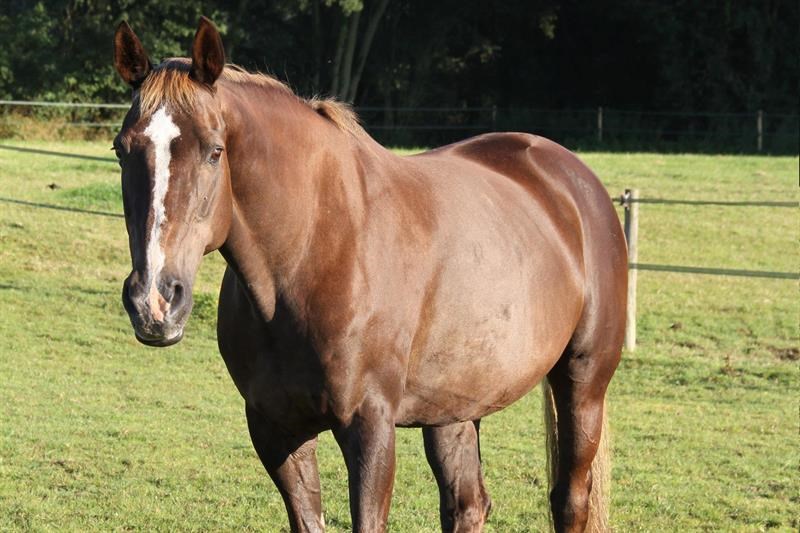Like humans, horses age at different rates and many factors influence the longevity of a horse’s life, including its breeding, the stresses and strains placed on it in earlier years and the standard of care. We always advocate treating every horse as an individual, regardless of their age but, as nutrition influences the health and welfare of all horses and ponies, it’s helpful to be aware of some of the effects of old age in order to establish which feed will meet a particular individual’s requirements.
PPID (Pituitary Pars Intermedia Dysfunction) aka Cushing’s Disease
With the wider availability of testing for this condition, more and more equines are being positively diagnosed and at an earlier stage too. In PPID horses, there is a disruption of the production of certain hormones, which can result in a range of symptoms.
The condition can be managed with medication but PPID horses will need their diet adapting as part of its ongoing management. In particular, because they will be more prone to laminitis, starch and sugar intake will need controlling. For good-doer this can be achieved by feeding a low-calorie balancer, like Baileys Lo-Cal, alongside forage and pasture. Access to pasture and forage intake levels may also need careful control depending on whether the horse is prone to unhealthy weight gain or has suffered recent laminitis attacks.
For PPID horses who need to gain weight, traditional cereal-based condition feeds should be avoided in favour of low starch options, like Ease & Excel or Ease & Excel Cubes. Both are high in calories and supporting nutrients but contain no whole cereals and supply “safe” calories from oil and highly digestible fibre. For those who become increasingly fussy, which often happens with PPID, the cubes contain extracts of flavours of essential oils that most horses love.
Dental Challenges
Loss of teeth or poor tooth condition is a common problem in older horses, affecting their ability to chew, which could result in partially digested food causing blockages in the gut. Common signs of dental problems include quidding, where food is dropped out of the mouth, and balled up bits of hay or haylage that have been spat out.
Maintaining sufficient fibre intake is the challenge as the chewing of long-fibred hay or haylage becomes more difficult. A variety of fibre/forage alternatives can be offered, alongside or instead of forage, including short-chopped chaffs, like Light Chaff, Alfalfa Blend or Alfalfa Plus Oil, depending on calorie requirements. Soaked Speedi-Beet is also ideal and particularly easy to chew, while soaked Fibre-Beet may be more appropriate for the poorer-doer.
Digestive Disorders
As horses get older they may become less efficient at absorbing nutrients from their feed and this could be worsened as a result of worm damage. They may also find it harder to digest fibre, as the fibre-digesting micro-organisms in the hindgut may become less efficient. Feeding a prebiotic, like Digest Plus, can help the beneficial bacteria in the hindgut to flourish, at the expense of pathogenic species, supporting a healthy microbial balance and digestive efficiency.
Muscling Up
Older horses can also be prone to muscle-loss, especially as workload decreases or stops, so it’s important to ensure their diet supplies adequate good quality protein to help their body maintain muscle tone and tissue integrity. Changing to a higher specification feed or balancer, like Performance Balancer (for good-doers) or Top Line Conditioning Cubes (for poorer-doers), will help supply elevated levels of quality protein to meet their needs.
Advice & Guidance
Every horse is different and everyone’s situation is different so, for loads more advice on how to feed the older or aging horse, check out the Baileys web site.
Feeding Answers - Brief answers to pertinent questions with links to further reading and appropriate products.
Nutrition Library – Kick back and read up on a huge variety of nutrition-related topics, including PPID and laminitis.
Feed Finder – Try out our sophisticated online tool to get a feed recommendation, for your horse, along with feeding rates and forage quantities.
Or contact our Nutrition Team on 01371 850247, nutrition@baileyshorsefeeds.co.uk or via our social media accounts.
F – @BaileysHorseFeeds
I – @baileyshorsefeeds
T - @BaileysFeeds
